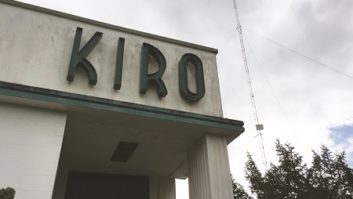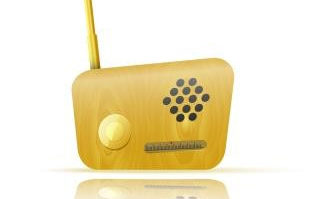Brett Moss is gear & technology editor.
“Digital technology alone will not ensure the preservation and survival of the nation’s sound history.��� So said a press release outlining the results of a recent congressionally-mandated study by the Library of Congress National Recording Preservation Board called “The State of Recorded Sound Preservation in the United States: A National Legacy at Risk in the Digital Age.”
Well, if digital technology isn’t going to be the medium of the future, I’m not sure what is. I don’t think wax cylinders are coming back. And if you think audiophiles have spazzes about CDs, wait’ll you see them listening to wax cylinders. Hearing a wax cylinder played back through a $5,000+ sound system would probably cause their golden ears to fall off.
But maybe I’m being too literal and the good-hearted authors mean more. I’d buy that. Technology alone will not solve a problem. It will require people paying attention and making an effort. But then that is always true. Why do we need a “study” to tell us that?
It is described as “the first comprehensive study on a national level that examines the state of America’s sound-recording preservation ever conducted in the United States.”
That’s all nice and tidy, isn’t it?
I have little doubt that authors Rob Bamberger and Sam Brylawski are sincere, probably care deeply about preserving old recordings and raise a number of valid questions and concerns; issues we do need to be aware of.
Yes, it’s long been known that reel-to-reel tapes are breaking down. Yes, it’s long been known that early “digital” formats are a little wonky. Yes, we know about orphan formats. Yes, we know that old stuff is disintegrating before our eyes … We didn’t need a study for that.
Yet the press release describing the study (which, FYI, I have not read), is full of classic rent-seeking, “Here’s a mission for (fill in name of government agency here) that only (fill in name of government agency here) can perform … And, oh, by the way, (fill in name of government agency here) will need a big jump in (fill in name of government agency here)’s budget and personnel to perform this duty that Congress and/or the Executive Branch has foisted upon (fill in name of government agency here)” buzzspeak. These self-justifying circles spin wildly in Washington.
Reading the release it is clear that the Library of Congress is offering itself as the savior of our amazing melting sound recording legacy.
But the study seems to have unearthed a couple of circles that probably can’t be squared. For instance, according to the release, “Only an estimated 14% of pre-1965 commercially released recordings are currently available from rightsholders.”
What about that? Does the LOC envision some kind of Keloesque eminent domain or audio archive nationalization legislation? Do they envision “Sound Cops” kicking down some doors to get at vitally important recordings that are being held hostage by their “rights-holders”?
The LOC release worries that “Of music released in the United States in the 1930s, only about 10 percent of it can be now readily accessed by the public.”
So?
Does “the public” have a right to everything?
And even if “the public” had a right to everything, how much is everything?
Librarian of Congress James H. Billington moaned in his introduction to the study: “Sound recordings have existed as one of the most salient features of America’s cultural landscape for more than 130 years … However, our collective energy in creating and consuming sound recordings in all genres has not been matched by an equal level of interest, over the same period of time, in preserving them for posterity.”
Jimbo, wanna hazard a guess on how much sound has been recorded over the last 130 years?
Ya’ think you’re going to be able to preserve it all?
You don’t have a building big enough. You don’t have the budget to do it. No one has the organizational skills to do it. You don’t have the legal authority to save it all …
It’s not quite cataloguing (and polishing) the sand grains in a desert but starts approaching that scale.
The truth has to be faced. “Preserving” our sound recordings will entail performing technical triage on a shocking level due to legal reasons, budgetary, personnel and time restraints along with the realization that some sound is more important and more popular than other sound. After all, if it’s really popular how could it be lost?
And much will be lost.
Instead of hoping to get a carte blanche out of Congress for a sound mercy mission (it is the Library of Congress, I remind you), why not be the leading evangelist for sound preservation? Encourage our overstuffed universities to get involved with local and regional archives. Let them pay for it and do the work. We have some nifty museums across the land. How about letting a few individuals get involved?
It would seem a few dozen archives working throughout the U.S. would be far more effective at the mission than whatever “underfunded” efforts the LOC can perform each year.
But that would require the Library of Congress to cede some control and share some credit … a hard bargain in the nation’s capital.



